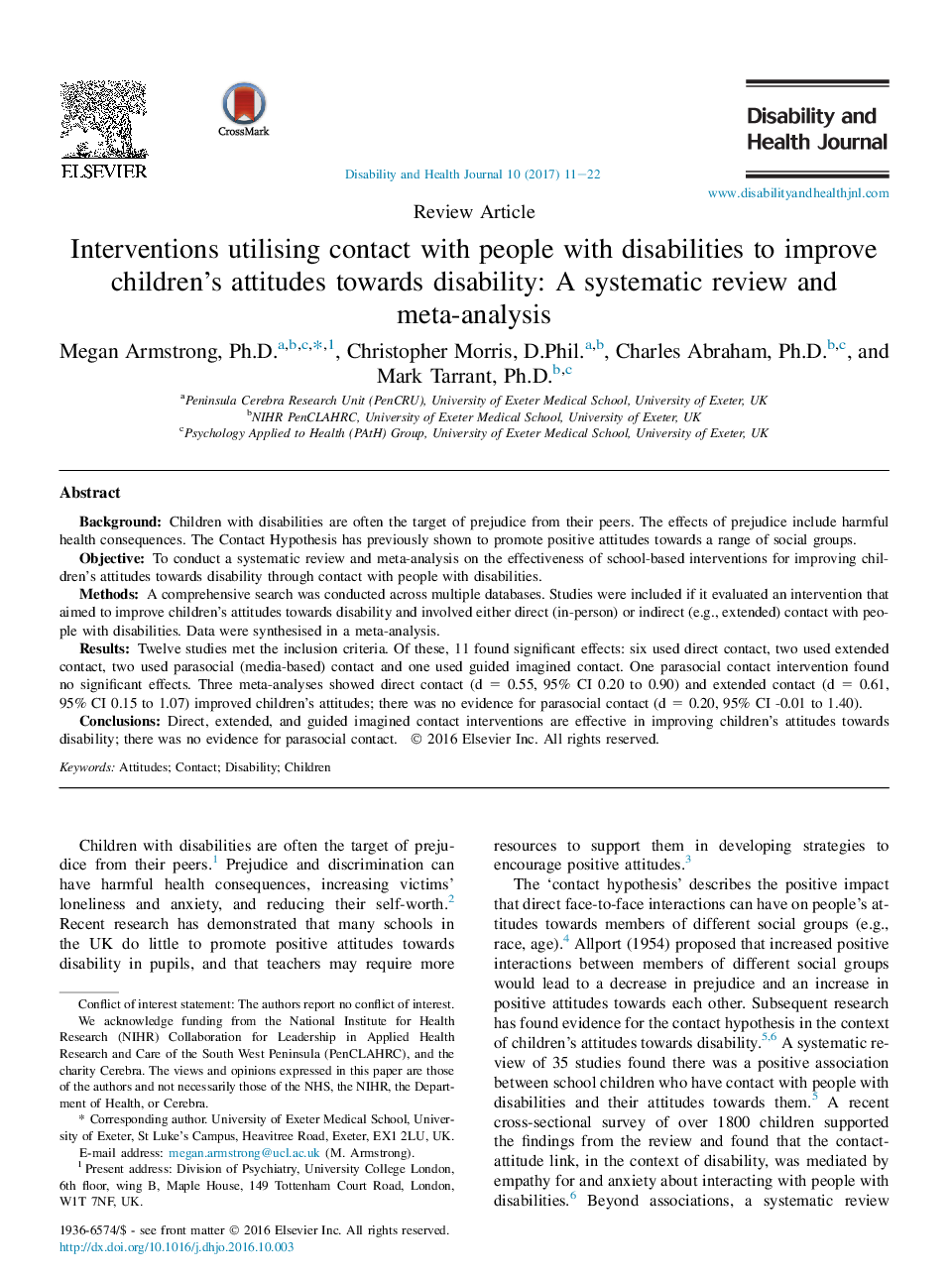| Article ID | Journal | Published Year | Pages | File Type |
|---|---|---|---|---|
| 5723272 | Disability and Health Journal | 2017 | 12 Pages |
BackgroundChildren with disabilities are often the target of prejudice from their peers. The effects of prejudice include harmful health consequences. The Contact Hypothesis has previously shown to promote positive attitudes towards a range of social groups.ObjectiveTo conduct a systematic review and meta-analysis on the effectiveness of school-based interventions for improving children's attitudes towards disability through contact with people with disabilities.MethodsA comprehensive search was conducted across multiple databases. Studies were included if it evaluated an intervention that aimed to improve children's attitudes towards disability and involved either direct (in-person) or indirect (e.g., extended) contact with people with disabilities. Data were synthesised in a meta-analysis.ResultsTwelve studies met the inclusion criteria. Of these, 11 found significant effects: six used direct contact, two used extended contact, two used parasocial (media-based) contact and one used guided imagined contact. One parasocial contact intervention found no significant effects. Three meta-analyses showed direct contact (d = 0.55, 95% CI 0.20 to 0.90) and extended contact (d = 0.61, 95% CI 0.15 to 1.07) improved children's attitudes; there was no evidence for parasocial contact (d = 0.20, 95% CI -0.01 to 1.40).ConclusionsDirect, extended, and guided imagined contact interventions are effective in improving children's attitudes towards disability; there was no evidence for parasocial contact.
